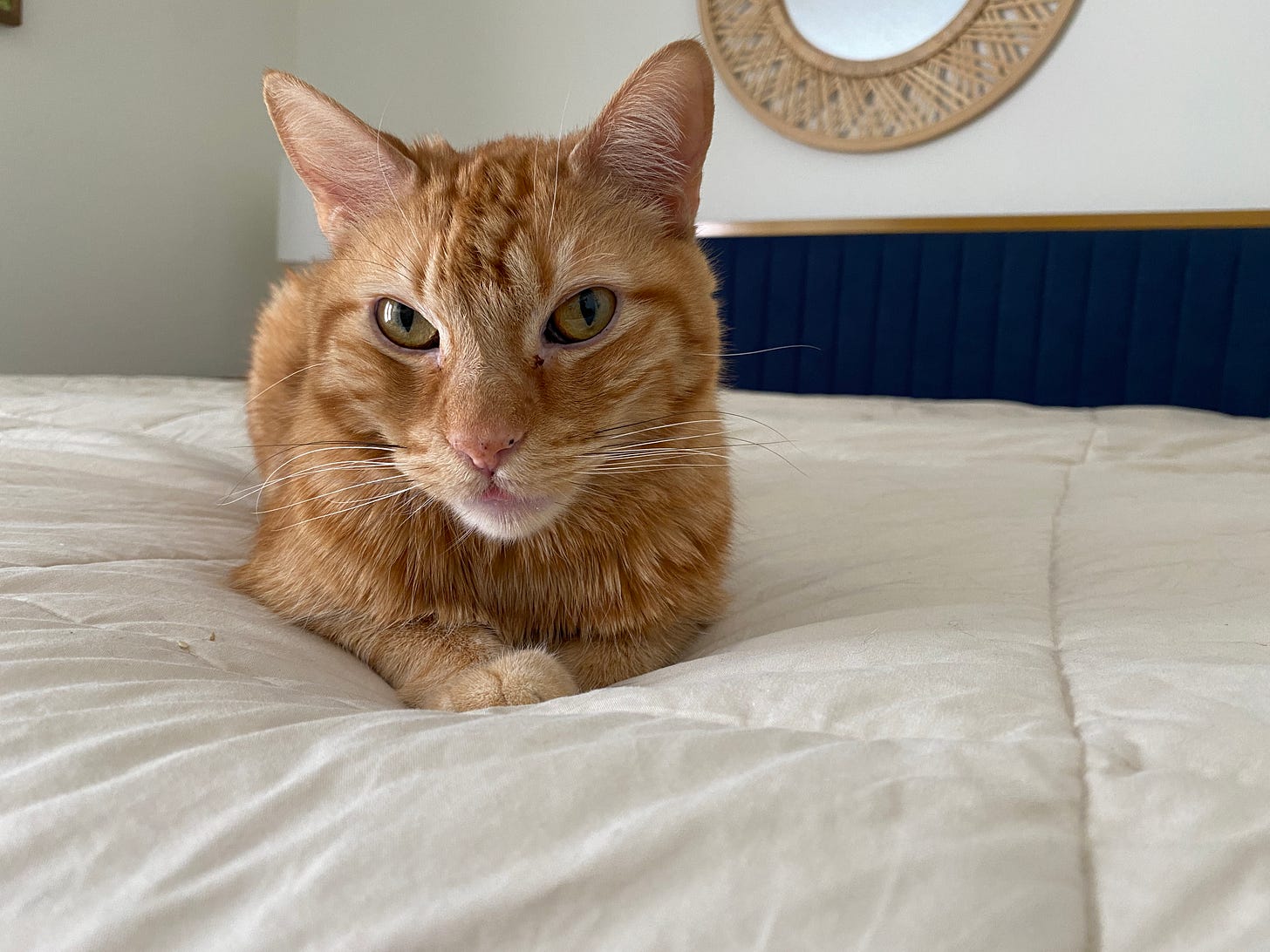Respecting the Boundaries of Our Animals
Our animal companions need their own space and sense of agency, just like we do.
Lyle, pictured here, is our cat who has the healthiest boundaries.
“Healthiest boundaries for an animal?!” you say.
Yes. If you don’t want an animal with anxieties and acting out problems, then you should know and respect their boundaries. They will make them clear to you; and everyone else—people and other animals, too.
For example, Lyle likes to be petted—on his terms. (I know that’s a stereotype—that all cats are supposedly moody and particular and only want to be petted at certain times and in certain ways. That’s nonsense. I have cats who welcome petting and kissing all the time.)
Lyle tells me—verbally—when he doesn’t like something. I don’t get mad. I don’t think that he’s “bitchy” or “being a typical asshole cat.” Nor do I think he’s being “defiant” or engaging in a battle of wills with me.
He is telling me that what I’m doing doesn’t make him comfortable.
If I don’t get the message clearly with his verbal warning, then he swipes at me.
This still doesn’t upset me. I appreciate the message, and when it happens, I am surprised that I didn’t pick up his message earlier. (It rarely gets to the swipe with me.)
I back off. I give him the respect he deserves.
I don’t see how we should expect any animal to be different than a person with respect to boundaries. Are you being “bitchy” or being “a typical asshole human” if someone touches you or gets close to you in a way that makes you uncomfortable, and you say something about it?
I will tell you how and why, with examples, your animal may be telling you that you’re overstepping their boundaries. Growling, hissing, nipping and biting, and acting out problems can all be from the repeated violations of their simple need to have their own personal space and agency.
I am also going to tell you a really simple rule to follow that will guarantee that any animal will feel safe, protected, and respected by you. By doing this—and even if they don’t know you—they will likely trust you and want you to be up in their grille.



